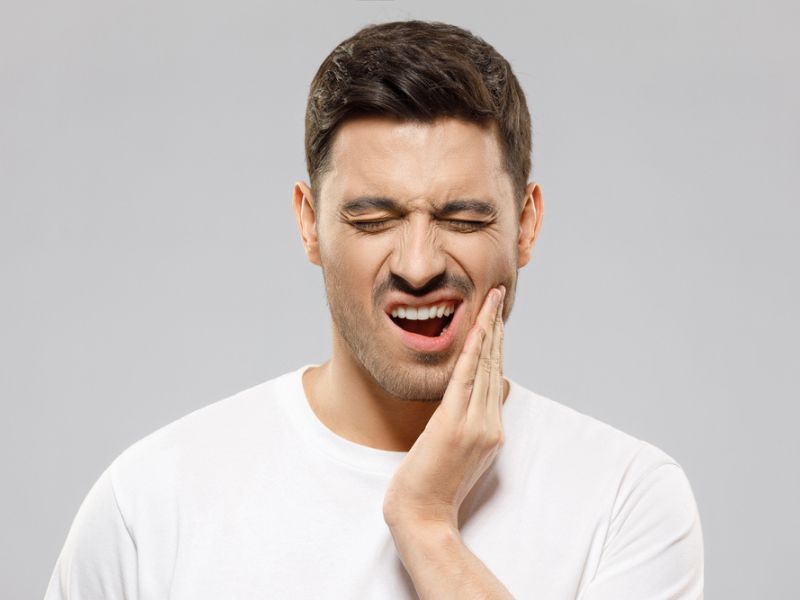The nighttime is a time for rest, pleasant dreams, and rejuvenation before the next day. You probably won’t find that when you grind your teeth. You may even wake up tired with tooth pain and tooth issues. The repercussions of teeth grinding, or bruxism, go way beyond tooth pain and damage when you suffer from it.
Dr. Floretta Cuffey-Terry, president of Washington, D.C.’s Robert T. Freeman Dental Society, said dental health could affect medical health. Chronic tooth grinding is associated with nutritional problems as well as stress. Experts share signs and advice on how to address grinding your teeth at night.

Image Credit: Shutterstock/GBALLGIGGSPHOTO
Headaches
Let’s say you grind your teeth at night. According to Dr. Albert Coombs, owner of Smile Services DC and member of the international dental implant association, you’ll likely end up with headaches. This morning headache is your body’s way of releasing pressure from the previous night. The temples and ear region are usually affected by tooth-grinding headaches.
Jaw Pain
Like headaches, you may wake up with pain around your mouth muscles or notice fatigue in your jaw muscles, said Cuffey-Terry. Mornings are likely to be the worst for this pain, lasting from a few minutes to a few hours. Get in touch with your dentist if you notice jaw pain in the morning.

Image Credit: Shutterstock/Damir Khabirov
Tooth Pain
According to Dr. Marjan Moghadam at New York University’s College of Dentistry, toothaches are a clear sign of teeth grinding at night. In the morning, bruxism may leave you with tooth pain or soreness. You should call your dentist for them. Any toothache, regardless of time, should be reported.